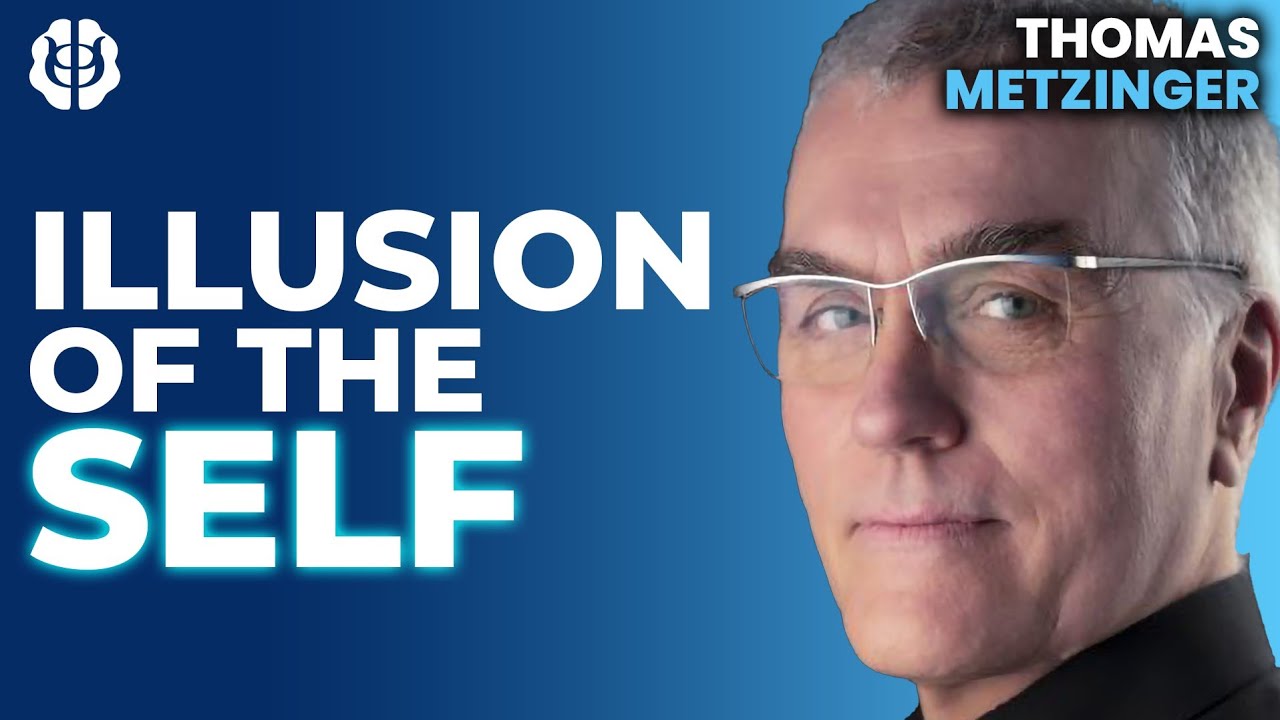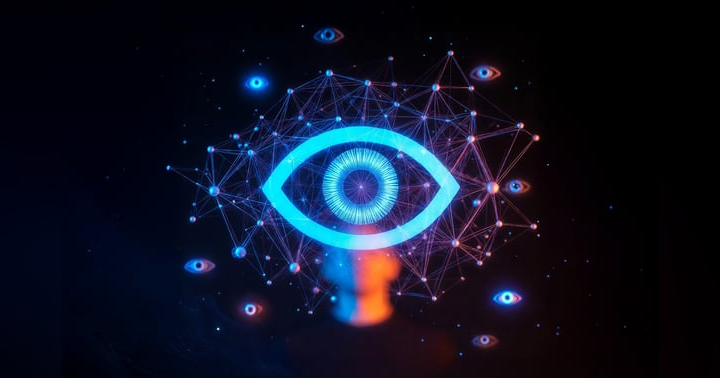The Illusion of Self: Exploring Metzinger's Ego Tunnel

In this blog post, we'll be diving deep into the fascinating world of consciousness and the very nature of the "self." We will be exploring Thomas Metzinger's groundbreaking concept of the 'Ego Tunnel,' which proposes that our perception of reality, including our own sense of self, is a constructed illusion. This post aims to unpack the philosophical implications of this idea and its potential impact on our understanding of what it means to be conscious. We'll discuss the mind-body problem, delve into perspectives from other thinkers like Daniel Dennett, and explore new approaches to understanding consciousness. If you found this topic intriguing, you might also enjoy the latest episode of the Mind-Body Solution podcast, Thomas Metzinger: Is The Self An Illusion? Minimal Phenomenal Selfhood & Epistemic Agent Model, where we delve even deeper into these concepts with the man himself.
Introduction: Unveiling the Illusion of Self
For centuries, philosophers and scientists have grappled with the fundamental question of what it means to be human. At the heart of this inquiry lies the concept of the "self" – that seemingly indivisible entity that experiences the world, makes decisions, and feels emotions. But what if this seemingly concrete "self" is not as solid as we believe? What if it's more of a carefully constructed illusion, a story our brains tell us to navigate the world? This is the central thesis of Thomas Metzinger's 'Ego Tunnel' theory, which challenges our intuitive understanding of self and reality.
The idea that the self might be an illusion can be unsettling. It challenges deeply ingrained beliefs about our individuality, our agency, and even our very existence. However, exploring this possibility can be incredibly liberating. It opens up new avenues for understanding consciousness, mental health, and even our ethical responsibilities. By deconstructing the illusion of self, we can gain a clearer picture of the underlying processes that shape our experience and develop a more nuanced perspective on our place in the universe.
Who is Thomas Metzinger?
Thomas Metzinger is a highly respected Professor of Theoretical Philosophy at the Johannes Gutenberg-Universität Mainz. He is a leading figure in contemporary philosophy of mind and cognitive science, known for his groundbreaking work on consciousness, the self, and the ethical implications of artificial intelligence. His books, including "The Ego Tunnel" and "Being No One," have been widely influential, sparking debate and inspiring further research in these complex areas. He is also the founder and director of the MPE-project, a network of serious researchers investigating the experience of pure awareness in meditation. Metzinger's work is characterized by its rigorous philosophical analysis, its deep engagement with empirical science, and its willingness to tackle some of the most challenging questions facing humanity.
What is Consciousness?
Before we can delve into the 'Ego Tunnel,' it's crucial to define what we mean by "consciousness." This is a notoriously difficult task, as consciousness is a subjective experience that defies easy definition. However, we can broadly understand it as the state of being aware of oneself and one's surroundings. It encompasses our thoughts, feelings, sensations, and perceptions – the totality of our subjective experience.
Consciousness is not a monolithic entity but rather a multifaceted phenomenon that can vary in intensity and content. We can distinguish between different levels of consciousness, from the basic awareness of an organism to the self-reflective consciousness of a human being. Furthermore, the content of consciousness is constantly changing, influenced by our internal states, external stimuli, and past experiences.
Despite the challenges in defining consciousness, it remains a central focus of philosophical and scientific inquiry. Understanding consciousness is crucial for addressing fundamental questions about the nature of reality, the mind-body relationship, and the possibility of artificial intelligence. It also has significant implications for our understanding of mental disorders and the development of effective treatments.
Defining the 'Ego Tunnel': Metzinger's Core Concept
The 'Ego Tunnel' is Metzinger's central metaphor for understanding the nature of consciousness and self-awareness. It proposes that we don't have direct access to reality but rather experience a filtered and constructed version of it. Our brains act as sophisticated simulation machines, processing sensory information and creating an internal model of the world. This internal model is not a perfect representation of reality but rather a simplified and selective reconstruction, designed to help us navigate our environment and survive.
The 'Ego Tunnel' analogy emphasizes that our experience of self is also a construct. Our brains create a sense of self by integrating various sensory inputs, memories, and emotions. This sense of self is not a fixed entity but rather a dynamic and ever-changing process. It's an ongoing narrative that our brains create to provide a sense of continuity and coherence to our experience. In essence, we are constantly living within our own 'Ego Tunnel,' mistaking the internal model for reality itself.
The Self as a Construct: Breaking Down the Illusion
If the 'Ego Tunnel' theory is correct, then the "self" we experience is not a fundamental entity but rather a cognitive construct. This means that our sense of self is not inherent to our being but rather a product of brain processes. It's a complex tapestry woven from sensory information, memories, emotions, and social interactions.
This understanding of the self as a construct has profound implications. It suggests that our sense of self is not fixed or immutable. It can be influenced by various factors, including our environment, our social interactions, and our own thoughts and beliefs. This also raises questions about the nature of free will and moral responsibility. If our actions are ultimately determined by brain processes, can we truly be held accountable for our choices?
Deconstructing the illusion of self can be a liberating experience. It allows us to detach from rigid self-identifications and to embrace a more fluid and adaptable sense of being. It can also lead to greater empathy and compassion, as we recognize that everyone is living within their own 'Ego Tunnel,' shaped by their unique experiences and perspectives.
The Mind-Body Problem
The 'Ego Tunnel' theory is closely related to the classic mind-body problem, which explores the relationship between our subjective experiences (the mind) and our physical bodies (the brain). Traditionally, philosophers have struggled to reconcile these two seemingly disparate realms. How can physical matter give rise to subjective consciousness? How can mental states causally influence physical processes?
The 'Ego Tunnel' offers a potential solution to the mind-body problem by suggesting that our experience of self and reality is ultimately grounded in physical processes. Our brains create a virtual reality, an internal model of the world, that we experience as consciousness. This doesn't necessarily imply that consciousness is "nothing but" brain activity, but it does suggest that it is fundamentally dependent on it.
By focusing on the physical mechanisms that underlie consciousness, the 'Ego Tunnel' theory offers a more concrete and scientifically tractable approach to the mind-body problem. It encourages us to explore the neural correlates of consciousness – the specific brain activity that is associated with different conscious experiences – and to develop computational models of how the brain creates our subjective reality.
Implications of Illusionism: Daniel Dennett's Perspective
The idea that the self is an illusion has been championed by other prominent philosophers, most notably Daniel Dennett. Dennett, a renowned philosopher of mind and cognitive science, argues that there is no central "Cartesian theater" in the brain where consciousness happens. Instead, he proposes that consciousness is a distributed process, a collection of narratives and interpretations that are constantly being constructed and revised.
Dennett's "illusionism" perspective aligns closely with Metzinger's 'Ego Tunnel' theory. Both thinkers emphasize that our subjective experience is a construct, a product of brain processes. However, they differ somewhat in their emphasis. Metzinger focuses on the idea that we are not directly aware of reality, while Dennett focuses on the idea that there is no central "self" that is experiencing anything.
Despite these nuances, both Metzinger and Dennett agree that deconstructing the illusion of self can be beneficial. It can lead to greater self-awareness, improved mental health, and a more realistic understanding of our place in the universe. By recognizing that our sense of self is not fixed or immutable, we can free ourselves from rigid self-identifications and embrace a more fluid and adaptable way of being.
New Approaches to Consciousness
The 'Ego Tunnel' theory is part of a broader trend in contemporary philosophy and neuroscience towards developing new approaches to understanding consciousness. These approaches often emphasize the importance of embodied cognition, which recognizes that our minds are not isolated entities but are deeply intertwined with our bodies and our environment. They also emphasize the role of predictive processing, which suggests that the brain is constantly generating predictions about the world and updating these predictions based on sensory input.
Epistemic Agent Model, Introspection & Mind Wandering
Metzinger's Epistemic Agent Model (EAM) offers a framework for understanding how conscious beings acquire and process information. The EAM posits that we are essentially "information tunnels," constantly filtering and interpreting sensory data to create a coherent model of reality. This model is then used to guide our actions and make predictions about the future.
Introspection, the act of examining one's own thoughts and feelings, plays a crucial role in the EAM. However, Metzinger cautions that introspection is not a direct window into our inner world but rather another form of simulation. When we introspect, we are essentially creating a model of our own mental states, which may not always be accurate or complete.
Mind wandering, the tendency for our thoughts to stray from the task at hand, is another important aspect of consciousness. Metzinger suggests that mind wandering may be a fundamental feature of the EAM, allowing us to explore different possibilities and generate novel ideas. However, excessive mind wandering can also be detrimental, leading to distraction and decreased performance.
Panpsychism & Existence Bias
Panpsychism, the idea that consciousness is a fundamental property of the universe and exists in all things, is a controversial but increasingly influential view in contemporary philosophy. While Metzinger is not a strict panpsychist, he acknowledges that it is a viable alternative to traditional materialist views of consciousness.
The 'Ego Tunnel' theory also raises questions about "existence bias," the tendency to overestimate the probability of one's own existence. Because we are constantly immersed in our own subjective experience, it can be difficult to imagine a world without us. This bias can lead to a distorted view of reality and can make it difficult to grapple with issues such as mortality and the meaning of life.
Bewusstseinskultur, Negative Egalitarianism & Practical Ethics
Metzinger advocates for the development of a "Bewusstseinskultur" – a culture of consciousness – that promotes self-awareness, critical thinking, and ethical responsibility. This culture would emphasize the importance of understanding the nature of consciousness and the potential pitfalls of the 'Ego Tunnel.'
He also proposes a concept called "negative egalitarianism," which suggests that we have a moral obligation to minimize suffering in all conscious beings, regardless of their species or cognitive abilities. This principle has significant implications for our treatment of animals, the development of artificial intelligence, and our approach to global issues such as poverty and inequality.
The 'Ego Tunnel' theory also has practical implications for ethics. By recognizing that our sense of self is a construct, we can develop a more nuanced and compassionate approach to moral decision-making. We can also be more aware of the potential biases and distortions that can influence our judgments.
How the 'Ego Tunnel' Impacts Our Understanding of Reality
The 'Ego Tunnel' theory radically alters our understanding of reality. It suggests that we are not directly perceiving the world as it is but rather experiencing a filtered and constructed version of it. This has profound implications for our understanding of perception, knowledge, and truth.
If our experience of reality is a construct, then we can never be certain that our perceptions are accurate. This doesn't necessarily mean that reality is unknowable, but it does mean that we need to be cautious about our claims to knowledge. We should always be open to the possibility that our perceptions are distorted or incomplete.
Practical Ethics
The implications of Metzinger's work extend into the realm of practical ethics. If the self is indeed an illusion, how does this affect our understanding of moral responsibility, empathy, and our obligations to others? Exploring these questions leads us to reconsider traditional ethical frameworks and to develop new approaches that are more aligned with our understanding of consciousness and the nature of self.
Thomas Metzinger's Recommended Thinkers
Metzinger often recommends exploring the works of other influential thinkers who have contributed to our understanding of consciousness and the self. These include philosophers like David Hume, Immanuel Kant, and Derek Parfit, as well as neuroscientists like Christof Koch and Antonio Damasio. Engaging with these thinkers can provide a broader perspective on the complex issues surrounding consciousness and the nature of reality.
A Better Culture of Consciousness
Metzinger envisions a future where we cultivate a "better culture of consciousness" – a society that is more aware of the nature of consciousness and the potential pitfalls of the 'Ego Tunnel.' This culture would promote critical thinking, self-reflection, and ethical responsibility. It would also encourage us to develop a more compassionate and empathetic understanding of ourselves and others.
Religious World-views & the Naturalist Turn
The 'Ego Tunnel' theory also has implications for religious world-views. By suggesting that our experience of self is a construct, it challenges traditional notions of the soul and the afterlife. This can lead to a more naturalist perspective on reality, one that is grounded in scientific evidence and rejects supernatural explanations.
Conclusion: Navigating the 'Ego Tunnel' and Beyond
Thomas Metzinger's 'Ego Tunnel' theory presents a challenging but ultimately liberating perspective on the nature of self and reality. By recognizing that our experience is a construct, we can gain a deeper understanding of consciousness, mental health, and our ethical responsibilities. We can learn to navigate our own 'Ego Tunnels' with greater awareness and compassion, and we can work towards creating a better culture of consciousness for all.
The exploration of the self as an illusion is an ongoing journey, one that requires critical thinking, open-mindedness, and a willingness to challenge deeply ingrained beliefs. As we continue to unravel the mysteries of consciousness, we can move closer to a more realistic and fulfilling understanding of our place in the universe.
If you found this exploration of Metzinger's Ego Tunnel fascinating, be sure to listen to the full conversation on the Mind-Body Solution podcast. You can find the episode here: Thomas Metzinger: Is The Self An Illusion? Minimal Phenomenal Selfhood & Epistemic Agent Model.








